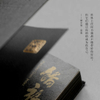分享到微信,
请点击右上角。
再选择[发送朋友]
或[分享到朋友圈]

去年此时,我们曾与您分享阅读与感悟。今天,我们再次于世界读书日向您发出邀请:在春天读首诗!
Last year, we shared with you our recommendations and findings of reading. And today, on the World Book and Copyright Day, The View invites you again: Let us read poems in spring!


晚饭后,陪家人出去散步。四岁多的女儿骑着她的踏板车,时而在前,时而在后。当我们经过一段路灯昏暗的街巷时,女儿兀自加快速度,滑板车的轮子不时闪烁着彩色的光亮。不一会,她又转回来。我们问她,为何骑那么快,她说,“因为天太黑了,我要骑得快一点,用彩色的光把天空照亮。”我们听着觉得有些惊讶,但她似乎觉得这是理所当然的,说完,便又掉转车头,往前滑行。不一会,又回来,如此再三,乐此不疲。儿童真是天生的诗人。
After dinner, I go for a walk with my family. My four-year-old daughter rides her scooter, and appears back and forth for a moment. When we pass by a dimly-lit alley, my daughter straightforward speeds up so that wheels of the scooter flash with colorful lights from time to time. After a while, she turns back. We ask her why she rides so fast. “Because it’s too dark now. I’m going to ride faster and illuminate the sky with colored lights”, she answers. We are a little surprised to hear that, but she seems to take it for granted. Afterwards, she turns around again and slides forward. After a while, she comes back. She shuttles again and again and is never tired of doing so. Children are really born poets.

前两天,有个朋友去郊外踏春,随手拍了张照片发到朋友圈,说:“看,绿得像火一样!”记得现代著名诗人穆旦有首写春天的诗,第一句就是“绿色的火焰在草上摇曳,/他渴求着拥抱你,花朵。”大自然总是这么神奇,冬尽春来,万物生长。这在诗人笔下是生命的盎然,是欲望的勃发,也是成长的痛苦与渴望。青年人渴望着,痛苦着,“等待伸入新的组合”(穆旦《春》)。
A few days ago, a friend went on spring outing at the outskirts of the city. He took a photo and posted it on WeChat Moments with a caption: “Look, it’s green like fire!” A poem about spring, composed by famous modern poet Mu Dan, suddenly occurs to me. The first sentence of this poem goes: “Green fire shimmers on the grass, and yearns to embrace you, O flower.” The magical Nature is always brimming with wonders, and everything grows when winter gives place to spring. Under the poet’s writing, this is the consummation of life, the blooming of desire, and the pain and longing of growth. The young people are “agonized, longing to stretch out, to form new alliances.” (Spring, Mu Dan, translators Herbert Batt and Sheldon Zitner).

伸入新的组合之后,有社会理想,有家国归属。“暮春者,春服既成,冠者五六人,童子六七人,浴乎沂,风乎舞雩,咏而归。”(《论语·先进篇》)在春风和煦的日子,着春服,行于途,歌而归,胸次悠然,与天地万物同流,各得其所,各得其妙。这是孔子的理想。“暮春三月,江南草长,杂花生树,群莺乱飞。见故国之旗鼓,感平生于畴日,抚弦登陴,岂不怆悢!”(丘迟《与陈伯之书》)目睹春天的万物复苏,怀想故国之失,足令人怆然而涕下。梁朝丘迟描绘的这幅图景,让陈伯之自魏归梁。丘迟与陈伯之的春之图景,是社稷的风景。
As revealed by “to form new alliances”, people uphold social ideals and affiliations for family and motherland. “In late spring, spring ploughing has been finished. Five or six adults, six or seven teenagers and I happily swim in Yi River. The gentle wind blows on Rain Altar (Wuyu Platform), and all of us go back home in singing melody” (The Analects of Confucius ·Chapter of Priority over Learning). Under the warm spring breeze, people wear spring clothes, leisurely walk on the way, return home in the songs, keep a carefree mindset, and echo with the universe. Each is in proper place, and each radiates its own charm. This is the ideal of Confucius. “In the lunar third month of late spring, in the south of the Yangtze River, verdant grasses grow, a variety of flowers bloom one after another, a group of yellow warblers flap wings to fly. Every time when you board the city wall, touch the bowstring, look at the war flags and drums of your motherland in the distance, and recall the previous life experience in the Liang Dynasty. How sad you are!” (Letter to Chen Bozhi, Qiu Chi) At sight of everything coming back to life in the springtime, reminiscence of the fall of the motherland is quite distressing. The touching picture, outlined by Qiu Chi of the Liang Dynasty, encouraged Chen Bozhi to resolutely return from the Wei Dynasty to the Liang Dynasty (during the Southern Dynasties). The spring scenes of Qiu Chi and Chen Bozhi mirror a big picture of a sovereignty.
春天是万物复苏的季节,但艾略特(T·S·Elliot)却说:
Spring embraces the revival of all things on earth, but Thomas Stearns Eliot comments in The Burial of the Dead (translator: Zhao Luorui):

被雪覆盖的冬天,常给人安全而温暖之感;春天的霏霏淫雨,有时反让人感觉阴冷。不过,在艾略特这里,冬天的温暖只是西方文明的残喘假象罢了,春天到来,万物萌发,这也让假象破灭,生命力衰竭的事实,就再也掩藏不住了。这个巨大的隐喻或者说象征,是艾略特对第一次世界大战后西方文明图景的整体判断。
The snow-covered winter often gives people a sense of safety and warmth. Instead, dense spring rain sometimes makes people feel gloomy and cold. However, according to Eliot, the warmth of winter is only the illusion of Western civilization which lingers out a feeble existence. With the advent of spring, everything germinates, which also shatters the illusion into pieces. Such a fact that vital force is exhausted can no longer be concealed. This colossal metaphor or symbol lies in Eliot’s overall judgment for a panorama of Western civilization after the World War I.

艾略特
T·S·Eliot
雪莱在《西风颂》中说,“如果冬天来了, 春天还会远吗?”艾略特则说,正是因为春天来了,人们才感受到真正的绝望。从这个意义上说,艾略特掐灭了西方浪漫主义漫长的遗绪。
“O, wind, if winter comes, can spring be far behind?” Percy Bysshe Shelley raises a question in Ode to the West Wind. Eliot points out that it is precisely because spring is coming that people really fall into despair. In this sense, Eliot wipes out the long-standing legacy of Western romanticism.

《西风颂》
Ode to the West Wind
于我们而言,四月不必然关连这种文明的隐忧,我们需要面对的是慎终追远。这实在是有智慧的礼制设计,在时间经由冬季的沉寂而即将重启的时候,面向未来的生产固然重要,朝向过去的回顾也同样如此。今天得朋友提醒,重读米沃什《礼物》一诗:
For us, April is not necessarily related to the hidden worries about this kind of civilization. What we should do is to carefully attend to the funeral rites of parents and follow them when gone with due sacrifices. This is indeed a ritual design full of wisdoms. When time is about to restart after dreary winter, future-oriented production is certainly important, and the same is true for retrospect over the past. Today, a friend reminds me to reread the poem Gift by Polish poet Czesiaw Milosz (translator: Xichuan):

这是诗人耳顺之年送给自己的礼物,朴素的字句,有冲淡之意,他最终选择了释然。但是,这种释然并不是走向虚无主义,而是接纳一生中所遭受的苦难,他与自己的苦难达成了和解。
This poem is such a gift that Milosz gives to himself when he was sixty years old. Simple verses contain diluted meanings, and he finally prefers the relieved feeling. However, instead of dashing into nihilism, this relieved feeling implies the acceptance of all sufferings he undergoes throughout his lifetime. Milosz also becomes reconciled with his own sufferings.


米沃什与《礼物》
Gift, Czesiaw Milosz
人的一生是如此,社会的发展也是如此。除了远处的目的地,我们都应该学会在前行的过程中发现风景。或许,平日会加快脚步经过的暗路,反而会成为印象最深的地方。
This is true throughout human life, and so is the development of society. In addition to far away destinations, we should learn to discover the sceneries when we move ahead. Perhaps, the dark roads, where we quicken the pace at ordinary times, will engrave the deepest impression in our mind.
永不停歇的浮士德,最终在幻景面前说,“停一停吧。”春天也是我们的幻景,在发展主义的快节奏中,我们也不妨停一停,在春天,读首诗。
Dr. Faustus, who constantly strives to pursue self-improvement, finally says in front of the illusion: “Verweile doch! (Stay a while!)” Spring is also the illusion in our eyes. In the context of fast-paced development, we might as well stop and read poems in spring.


作者简介
ABOUT THE AUTHOR
刘奎,厦门大学台湾研究院副教授,主要研究方向为中国现代文学,两岸诗歌。
Liu Kui, Associate Professor, Graduate Institute for Taiwan Studies of Xiamen University. His research interests include modern Chinese literature and cross-strait poetry.

《芳草说》是一个基于侨福芳草地品牌内核开辟的随笔专栏,由侨福芳草地主办,侨福当代美术馆·北京承办,将刊登于“侨福芳草地”微信订阅号,每双周更新。每一期,我们将邀请一位在自身领域具有一定影响力的知名人士,就时下热点话题或近期见闻分享有价值的思考与感悟,在艺文绿洲的平台上展现独特的人文魅力。
The View is a featured column based on the brand DNA of Parkview Green FangCaoDi. Hosted by Parkview Green FangCaoDi and undertaken by The Parkview Museum Beijing, The View will be released in the “Parkview Green FangCaoDi” WeChat subscription channel biweekly. Each issue will feature an article composed by a key opinion leader in the fields of art and culture, architecture, business, etc. They are here to share the insights of their profession and the industry, observations on recent news, and valuable reflections of matters in life. This column delivers the connotation of art and culture through different perspectives.






作者:侨福芳草地

分享到微信,
请点击右上角。
再选择[发送朋友]
或[分享到朋友圈]

